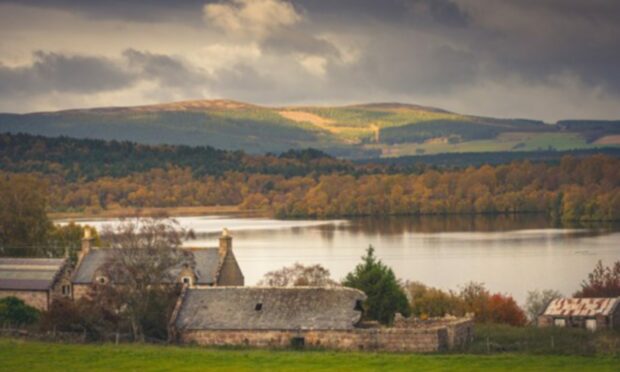A new investigation is poised to “shine a light” on the impact of so-called “green lairds” on the booming land market in rural Scotland.
Land reform campaigners welcomed plans to contact agents across the country to try to collate data and improve “transparency” on estate sales, which are often private deals.
The move aims to help understand the scale of a trend which involves companies and individuals buying-up land for carbon off-setting, or to take advantage of government grants for tree-planting and other initiatives to respond to the climate emergency.
Scottish Land Commission (SLC) chief executive Hamish Trench, who discussed the plan in an interview with us in September, suggested the survey was an important step towards “shaping these markets to work in the public interest”.
Growing concern
It is being carried out amid growing concern that communities are being priced out of owning and benefitting from local land as result of interest from “green lairds”.
Examples of recent deals have included a £7.5 million Standard Life Investments Property Income Trust (SLIPIT) purchase of 1,447 hectares of upland rough grazing and open moorland in the Cairngorm National Park, to be “used as part of the company’s carbon strategy”.
Another involved craft beer giant Brewdog, which unveiled a bid to create a “lost forest” at the 9,300-acre Kinrara Estate in the Cairngorms to offset carbon produced at its brewery.

The new report, commissioned by the SLC, will be delivered by Scotland’s Rural College in partnership with land agents Savills and Strutt and Parker, with support from the Royal Institution of Chartered Surveyors (RICS).
Calum MacLeod, policy director at Community Land Scotland, which represents groups who manage 560,000 acres, said it was a step forward.
‘It’s vital to shine a light on land market’
“We welcome this research on the dynamics of Scotland’s largely unregulated rural land market and the role of natural capital investment in inflating land values,” he said.
“It’s vital to shine a light on land market activity in the interests of transparency and to ensure that it serves the public interest by contributing to community wealth-building and achieving a just transition to net zero that delivers public benefits and community benefits simultaneously.”
Highlands and Islands Labour MSP Rhoda Grant said also backed the research.
She said: “We read about large land purchases by ‘green lairds’ but these are only the ones that hit the headlines. It will be very useful to understand the true scale of these purchases.
“I hope that the Scottish Government will act quickly to deal with land ownership patterns in Scotland which sees a small amount of people holding the majority of our land. Green lairds will only make the situation worse.”
Sarah-Jane Laing, chief executive of Scottish Land & Estates, said: “We’re supportive of this research initiative and look forward to the publication of its results in due course.
“It is important that public policy on landownership and land use is based on a solid evidence base rather than anecdotes and we hope this exercise will help to achieve that end.”
Announcing the survey on Tuesday, Mr Trench said Scotland was well positioned to “make the most of private investment in delivering land use change that meets the climate targets”.
‘Public interest’
He added: “Doing this in a way that drives a just transition, where the opportunities, costs and benefits are shared fairly means shaping these markets to work in the public interest.
“Part of this is having improved transparency and shared understanding of how the land market is operating.
“As it stands, there is uncertainty around the volume and value of off-market, or private, land transactions – and the motivations of both buyers and sellers.
“Global efforts to tackle climate change are driving demand for carbon and natural capital investment and there is growing concern about the impacts of this in the land market.
“Improved market transparency will help inform evidence-based policy and help address the risks and opportunities.”
The research aims to analyse and report on the current pattern of activity within Scotland’s rural land market.
It will also help create a methodology for gathering data about such activity.
A final report is due to be published in the spring.


